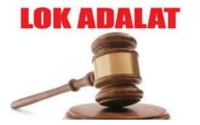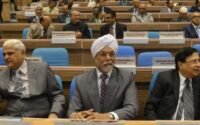STANDING AT THE WAKE OF DEVASTATION: AHMADI MUSLIMS IN PAKISTAN
This article has been written by Ipsita Rout, a 4th year student from KIIT School of Law and has been curated by Yashasvi Kanodia from NMIMS Kirit P. Mehta School of Law.
WHO ARE AHMADIS?
The Ahmadiyya community was formed by Mirza Ghulam Ahmad, the father and founder of the sect who was born in 1835. He believed that he had received a divine message that he was the promised Messiah and the anticipated Mahdi, whom most Muslims believe would appear at the end of the day to bring about Islam’s final triumph. When Ghulam Ahmad accepted the pledge of allegiance offered to him on Mar. 23, 1889 by his companions, the sect emerged.
Ahmadis recognize themselves as Islam’s promised second rise; the second rise of the Muslim community linked to the Koran’s projected first generation of Muslims; the Prophet Muhammad’s predicted surviving party of Muslims; and leaders of the second Orthodox caliphate. They do not present themselves as a religious movement or an ideology that originated in reaction to other political sects, nor do they consider themselves to be a religiously veiled political party aspiring to promote their own interests. They believe that, they are the last community of believers that emerged by order of God after Muslims deviated from the proper direction and Islam became a soulless body, and that by believing in God and the Prophet Muhammad, their aim is to alleviate humanity’s misery and pain and establish security and peace in the world.
It is seen as deviating from Islam by critics of the sect who believe Ghulam Ahmad to have wrongly assumed prophecy by claiming he is the Messiah. They also argue that under the justification that they are ‘guardians who should be obeyed,’ he founded his sect to serve the Colonial rule and avoid fighting the British. This criticism is based on a letter sent to the British ruler of India in 1898 which attributed to Ghulam Ahmad stating, ‘I have been striving with my tongue and pen since I was young to intensify the course of Muslims on the British government and to wipe out the notion of jihad, which is accepted by some of the ignorant Muslims.
HISTORICAL BACKGROUND
The Ahmadiyya group was declared a non-Muslim minority in 1974 by a constitutional amendment adopted by Prime Minister Zulfikar Ali Bhutto’s government. In general, this move was interpreted as a response to pressure from orthodox Muslim groups to circumscribe the Ahmadis’ activities. On July 5, 1977, President Zia-ul-Haq came to power in a military coup which overthrew Prime Minister Zulfikar Ali Bhutto’s government. With the proclaimed intention of turning Pakistan into a profound Islamic society, he initiated a program of ‘Islamization’. In enforcing restrictions on the Ahmadiyya minority, some analysts saw President Zia as reacting to tension from Islamic fundamentalist groups on whom he was deemed to depend on his government for help. Fundamentalist mullahs [Islamic scholars] reportedly warned in early 1984 that if no further action was taken against Pakistan there would be infringement of Ahmadis’ human rights by Apr. 30, 1984 and if the 1974 constitutional amendment were not rigorously implemented, Ahmadi places of worship would be targeted and the targets of attacks would become members of the group.
President Zia-ul-Haq enacted Ordinance XX on Apr. 26, 1984. The Pakistan Penal Code (PPC) was modified by the Ordinance, which introduced Sections 298-B and 298-C, rendering it a criminal offense for Ahmadis to declare themselves Muslims, to use terminology and appellations synonymous with the Prophet, to use Muslim rituals in worship or to spread their religion. Section 298 of the PPC deals with the criminal offense of “uttering words, etc with specific intent to damage religious feelings”; Section 298-A deals with the use of derogatory statements, etc in reference of holy personages”.
PLIGHT TO THE COMMUNITY OF AHMADIS IN PAKISTAN
Over the course of time, the Ahmadi Muslims in Pakistan have dealt with a series of transgression on part of the government, police, military and society which has cornered them to social ostracizing, unemployment, unavailability to access daily amenities of life like education, food and homes, burning of houses while they were inside, abduction of passports, threat of life when they would call themselves Ahmadi Muslims, loss of families and a fate worse than death itself. Some who had the resources are fleeing Pakistan but, everyone is not in a position to abandon their ancestral homes and uproot their life to start a new one. The government of Pakistan has already broken the diplomatic immunity whereby they were to safeguard the interests of the religious minority and a United Nations intervention on matters of the Ahmadis in Pakistan is now the only hope at such catastrophic times of terror and chaos.
At the grassroot level, none of the government leaders have spoken in favour of the Ahmadis since the passing of the constitutional amendment and this image of imposter has now become more like an identification label for anyone who identifies themselves as Ahmadi Muslim in Pakistan.
SUGGESTIONS AND RECOMMENDATIONS
At times of grave Human Rights violation, the United Nations intervention might only subdue the debate of theocratic nature but might not be able to combat the crux of the issues. There are a total of 73 sects of Muslims in the world, wherein the Sunnis and Shias are the vast majority and across the globe there are only 10 million Ahmadis alive. This debate needs to be discussed and the only way to justify this war on faith is to call all the caliphs into one forum and have a rational discussion regarding the same. Much like the Nuremberg trials held after the World War II to right the wrongs that held Germany responsible, we owe it to the Muslim community as a whole, to ratify this debate once and for all. Otherwise, the Ahmadis much like the Jews will face a fate worse than those of the second world war and terrorism shall prevail the world.
CONCLUSION
One cannot quench his/her thirst without water and water cannot be obtained without a container to hold it. The container is the ‘acceptance of the Muslim community’ as a whole and the faith is water. Without rights of a life with dignity the Ahmadis shall be extinct one day. One can only hope that they get to quench their thirst while there is water in the world.


